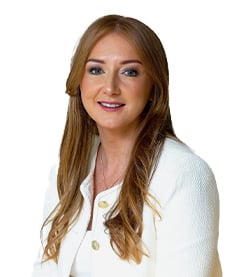Sign up for expert insights, industry trends, and key updates—delivered straight to you.

On 5 November 2024, EU finance ministers approved the amended ViDA proposal, paving the way for formal adoption on 11 March 2025. This article outlines the third pillar of ViDA: the extension of the One Stop Shop (OSS) to facilitate a single VAT registration.
ViDA consists of three main areas:
- Digital reporting and e-invoicing
- VAT changes for platforms and online services
- Single VAT registration and OSS
As the final article in our ViDA series, this overview focuses on the changes to the OSS and their implications for businesses. For details on the other pillars, see the linked articles above.
Expanded OSS for B2C and selected B2B supplies
Currently, OSS allows businesses selling B2C goods or providing certain services across the EU to fulfil VAT obligations through a single online portal. From 1 July 2027, this will extend to supplies such as gas, electricity, heating and cooling.
From 1 July 2028, the OSS will further expand to cover all B2C services provided in Member States where the business is not established. The non-Union OSS will also cover all B2C services made within the EU, including those supplied to customers outside the EU.
The Union OSS will include domestic B2C sales of goods made by non-established, non-registered businesses in the Member State of consumption.
Reporting own goods transfers through OSS
From 2025, businesses will be able to report movements of their own stock between EU Member States via the Union OSS. For EU businesses, this will be done through their Member State of establishment. For non-EU businesses, it will be through the Member State of dispatch.
Call-off stock arrangements, which currently benefit from EU simplification, may also be reported through OSS.
Phase-out of the EU call-off stock simplification
After 30 June 2028, no new call-off stock arrangements can be initiated. Existing arrangements that began before this date may continue under current rules, including the 12-month transfer of ownership window. The simplification will cease entirely on 30 June 2029, as the OSS will accommodate these transactions.
Wider application of the domestic reverse charge mechanism
From 1 July 2028, the domestic reverse charge will become mandatory for all B2B supplies of goods and services by non-established, non-registered businesses, where the recipient is VAT registered in the Member State concerned.
Member States may also apply the reverse charge to all situations involving non-established suppliers.
Also, from 1 July 2028, transactions subject to the extended reverse charge must be reported in the EU sales list (ESL). From 1 July 2030, both the supplier and buyer must report these in the EU DRR via e-invoicing and transaction-based reporting.
Impact of ViDA OSS changes on businesses
The extended OSS, the new scheme for own goods transfers and the broadened use of the reverse charge mechanism are expected to reduce VAT compliance costs for businesses. However, these changes will be accompanied by increased digital reporting and e-invoicing obligations from 1 July 2030.
Despite the new requirements, the streamlining of compliance and potential automation (such as pre-filled VAT returns) could lead to long-term cost savings.
Stay informed
The extended OSS and related reforms mark a major shift in how cross-border VAT compliance is managed. With staggered go-live dates and overlapping obligations, businesses should assess their supply chains and reporting systems now to ensure a smooth transition.
Visit our ViDA hub for a comprehensive view of the changes, including key dates, practical considerations and insights across all three pillars of the proposal.






